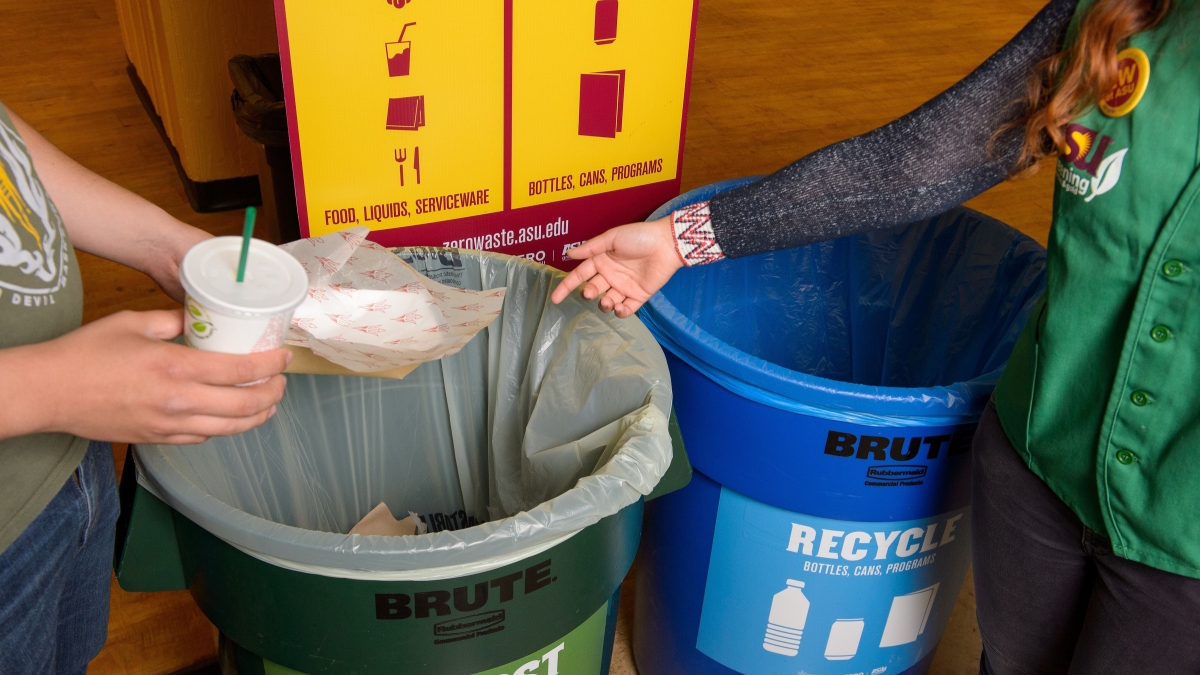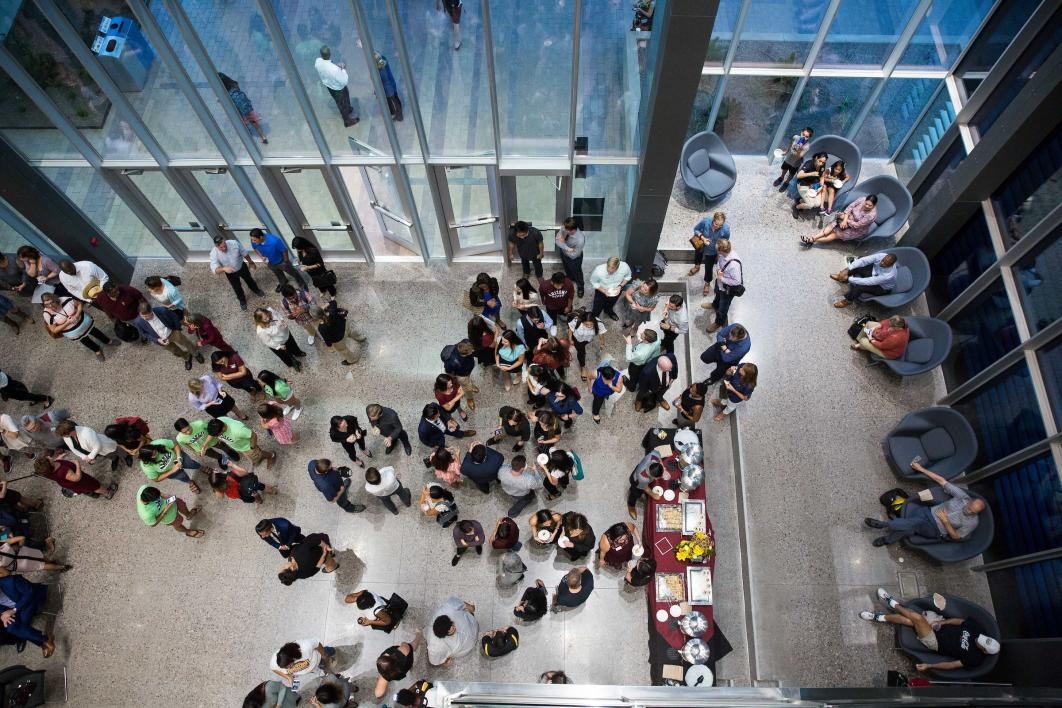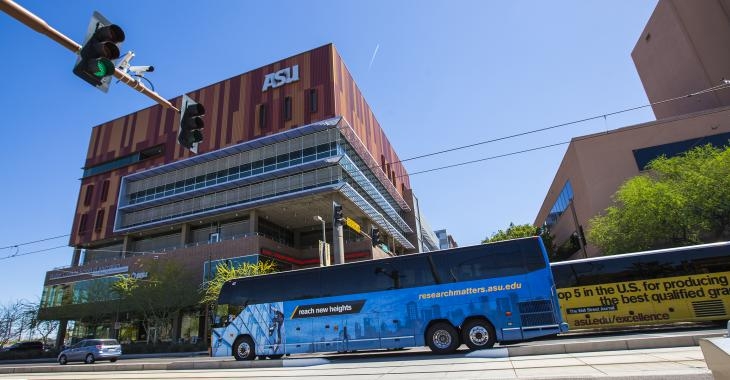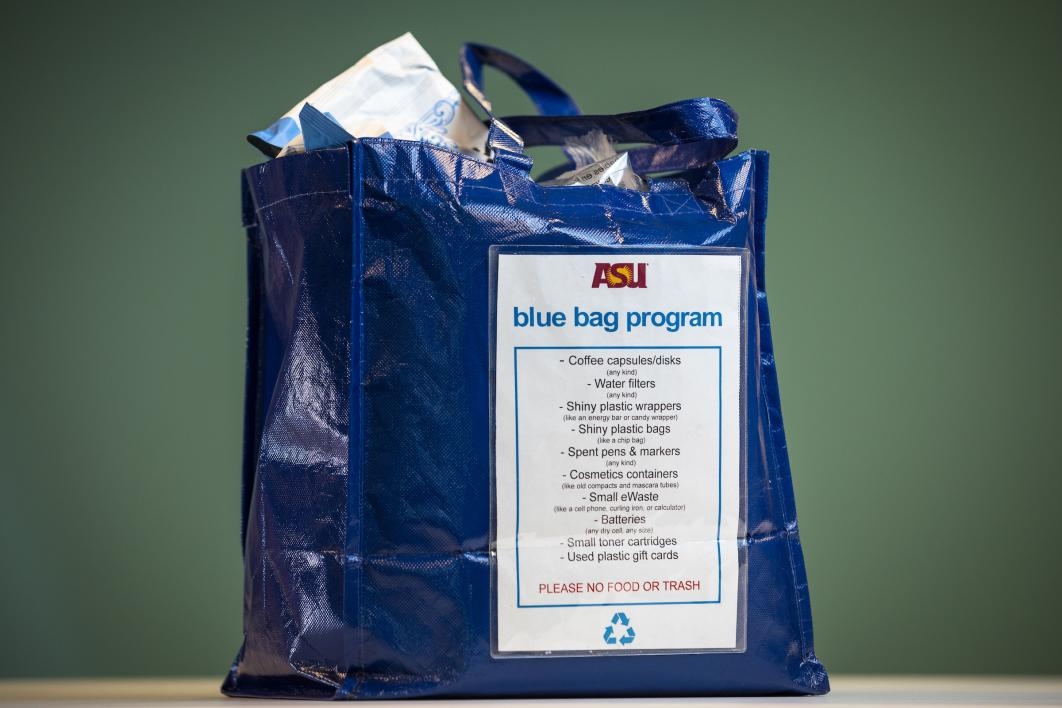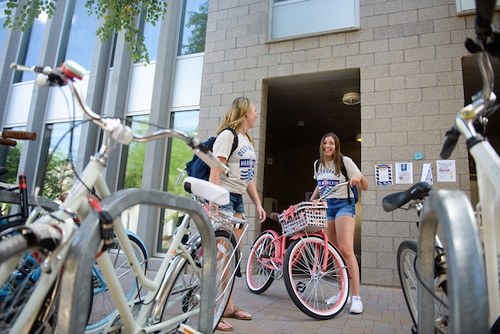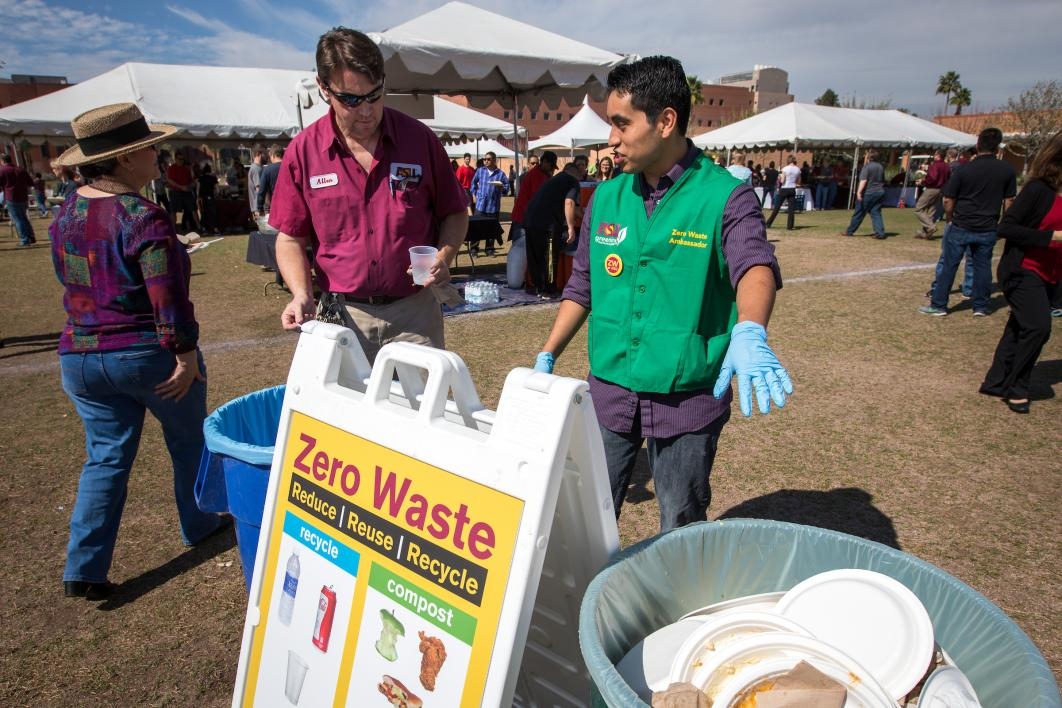University Sustainability Practices makes it easy to green your event and office during campus sustainability month. Event hosts and office staff may participate in the ASU Sustainability Certification Program to receive a bronze, silver or gold certificate.
“The new certification is more relevant and provides more supporting information,” said Michele Nobles, ASU Global Launch business operations manager and Green Devil. “The Blackboard site makes it easier to find, track and save progress to finish the checklist later.”
Green events are an easy way to be sustainable and engage attendees to become more aware of campus sustainability in the process. Beyond pairing recycling and landfill bins, food, transportation and education are areas to begin greening events.
Event planners can use ASU’s Aramark catering services’ Decidedly Green Catering Menu, which includes vegan and vegetarian products that encourage attendees to eat low on the food chain.
This menu is seasonal, plant-based and serves food from more than 15 local food producers, like eggs from Hickman’s Family Farms. Catered events serve American Humane Certified meat, cage-free eggs and Monterey Bay Seafood Watch certified seafood.
Every certified event diverts or recycles environmentally friendly eating utensils.
Hosts also can encourage guests to walk, bike and take public transit to the event. Attendees also may take the intercampus shuttle between the ASU campuses and Mayo Clinic.
Request a presentation from a University Sustainability Practices team member or the Zero Waste department to learn more about sustainability operations at ASU.
The campus culture of sustainability is apparent when Zero Waste department volunteers work at large university events. ASU’s annual staff barbecues are the largest zero waste event on campus each year. At the 2017 events, the diversion rate was 94.3 percent.
Overall in the fiscal year 2016, ASU composted 508.09 tons and diverted 36.5 percent of all waste from the landfill. Also in the fiscal year 2016, University Sustainability Practices engaged 8,597 students, faculty and staff through 102 sustainability-related events.
“Greening events made a positive impact on campus last year, and the ASU community has the opportunity to work together to continue our momentum this year,” said Mick Dalrymple, University Sustainability Practices director. "Campus sustainability month offers many opportunities for community members to start greening their events and join that momentum."
Green your workplace
With more than 14,000 employees, ASU faculty and staff have a chance to impact sustainable campus culture with its certification program for offices. The certification engages all aspects of the workplace, including printing, energy, purchasing, waste and creating a sustainable workplace community.
“The office certification is easy, fast and achievable. My department gets together, chooses one topic and focuses on it,” said Laurie Bitz, ASU Health Services medical assistant. “I think it opened the eyes of a few coworkers who didn’t know what sustainability was.”
A Canon Print Assessment is a simple way to start the office certification process. Assessments may include energy, toner and paper-saving recommendations.
These small changes made a big impact in ASU offices. Double-sided printing saved 417,326 pages and 1,434,855 gallons of water in the fiscal year 2016. By completing Canon Print Assessments, ASU departments reduced its carbon footprint by 154,739 pounds and saved 1,688 trees in the fiscal year 2016.
Reaching a gold-level office certification could be as simple as a commitment to turn off lights and monitors when not in use. Another option is to install motion-sensor lights, which turn off after a period of inactivity.
When office equipment or other items are exhausted, send them to ASU Surplus Property, which diverts used ASU office items from the landfill. Some of the items for sale are often cheaper than buying new.
There are two ways to divert waste from the landfill and increase ASU’s zero waste reporting. Departments may request on-demand or scheduled pickups of lockable shredding containers for a small fee. The Zero Waste department also provides the Blue Bag program to divert hard-to-recycle items like plastic coffee pods and batteries.
To become more involved with ASU’s sustainability culture, join the Green Devil Network, which includes training to become a sustainability advocate. Sustainable transportation efforts staff can make include carpooling or using the intercampus shuttle between campuses. Additionally, campus sustainability events like the Fresh and Local Market engage participants to consider sustainable practices.
Event volunteer opportunities also are available for staff; email the Zero Waste department or search Zero Waste @ ASU on VolunteerMatch.
University Sustainability Practices began offering the Sustainability Certification Program for events and offices in 2014 and 2010, respectively. Since then, more than 250 events and 40 offices have been certified. ASU staff who made individual improvements to their events and offices make ASU a leader in sustainable operations.
More Environment and sustainability

From K–12 to corporate upskilling, ASU guides learners of all ages to design a sustainable future
Editor’s note: This story is part of a series exploring how ASU tackles complex problems to create a thriving future.When Kennedy…

Sustainability leadership in action
Editor's note: This story was originally featured in a special edition of ASU Thrive magazine.ASU alumni are making an impact.…

Sustainable plant-based polymers could replace endocrine-disrupting plastics
We humans produce enormous volumes of plastic waste, and we recycle very little — just 14% of the 590 billion pounds discarded in…


